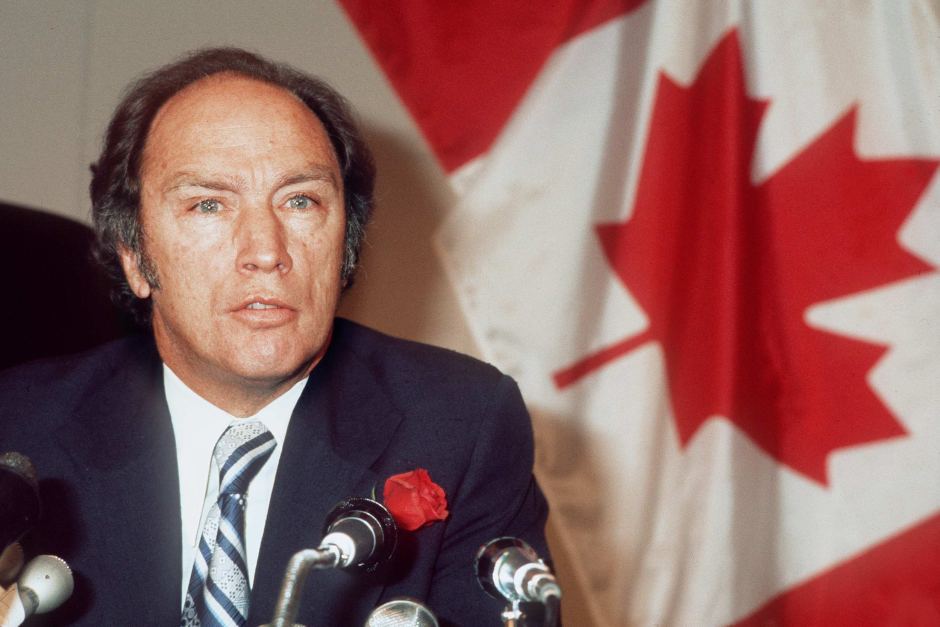Revisionism: Canada and Africa’s liberation struggles

Canada’s position towards the African liberation struggles of the 1970s and 1980s should influence how people view deploying troops to the continent today. This history – and the media’s distortion of it – suggests the need for healthy dose of skepticism towards Ottawa’s intentions.
Did Canada lead the international charge against apartheid and white rule in South Africa or criticize a country that, in fact, did?
Recent commentary about Canada’s policy towards southern Africa’s liberation struggles distorts history that should inform debate over Canada’s planned military deployment to the continent today.
A Globe and Mail article last month described “Canada’s strong support for the anti-apartheid movement” while a Kingston Whig Standard story last week claimed a “senior Canadian diplomat and his wife became engaged in providing support to a wide array of South Africans actively opposing the apartheid regime.” A Le Devoir columnist wrote that “faced with apartheid South Africa, former Canadian Prime Minister Brian Mulroney, in the 1980s, was the first in the Commonwealth to adopt a policy not of inclusion but of economic sanctions, against the government of Pieter Botha.” But, this statement is only plausible if you reduce the Commonwealth to the European settler states. Does anyone actually believe Ottawa was more opposed to the white regime than Ghana, Nigeria, Kenya, Uganda, Tanzania, India, etc.?
A Toronto Star editorial about Fidel Castro’s death hinted at a position hard to align with this self-congratulatory revisionism. (Or a Star story after Nelson Mandela’s death titled “Canada helped lead international fight against apartheid”). The editorial pointed out that in the late 1970s Prime Minister Pierre “Trudeau was also voicing deep concerns to Castro… over Cuba’s military involvement in Africa, especially Angola.” The Star editorialists failed to elaborate on Trudeau’s “deep concern”.
Not long after Angola won its independence from Portugal, apartheid South Africa invaded. In an important display of international solidarity Cuba came to Angola’s defence. Thousands of Cuban troops, most of them Black, voluntarily enlisted to fight the racist South African regime. Contrary to Western claims, Cuba decided to intervene in Angola without Soviet input (Washington knew this at the time). Cuba’s intervention helped halt South Africa’s invasion.
This successful military victory by Black forces also helped bring down apartheid in South Africa. The famous township rebellion in Soweto took place three months after South Africa’s initial defeat in Angola. Nelson Mandela’s ANC noted “their [the South African army’s] racist arrogance shrank when our MPLA [Popular Movement for the Liberation of Angola] comrades thrashed them in Angola.” For its part, Johannesburg’s Rand Daily Mail warned that the legacy of Angola resulted in “blows to South African pride.” The paper viewed the defeat as “the boost to African nationalism which has seen South Africa forced to retreat.” In a similar vein another South African analyst observed “whether the bulk of the offensive was by Cubans or Angolans is immaterial in the colour-conscious context of this war’s battlefield, for the reality is that they won, are winning, and are not white: and that psychological edge, that advantage the white man has enjoyed and exploited over 300 years of colonialism and empire, is slipping away. White elitism has suffered an irreversible blow in Angola and whites who have been there know it.”
Ottawa freaked out, diplomatically speaking. Trudeau stated: “Canada disapproves with horror [of] participation of Cuban troops in Africa” and later terminated the Canadian International Development Agency’s small aid program in Cuba as a result.
Conversely, Ottawa funneled aid to Zambia during this period partly to support its “moderate” position in southern Africa’s racial conflict. In Canadian Development Assistance to Zambia Sinkala Sontwa explains how Ottawa “lent support to what they considered as Zambia’s moderate stand among the Front Line States on Southern African politics.”
A few years earlier Canadian officials expressed apprehension about providing indirect backing to Ghanaian and Tanzanian proponents of what Ottawa dubbed a “war of liberation” in southern Africa. At the end of the 1960s, Canada failed to renew its military training in Tanzania partly because the government provided limited support to the liberation movement on its southern border in Mozambique.
Canada’s position towards the African liberation struggles of the 1970s and 1980s should influence how we view deploying troops to the continent today. This history – and the media’s distortion of it – suggests the need for healthy dose of skepticism towards Ottawa’s intentions.
To paraphrase George Santayana, Canadians who cannot remember the past are condemned to allow the bad guys to repeat it.
* Yves Engler is the author of Canada in Africa: 300 Years of Exploitation.
* THE VIEWS OF THE ABOVE ARTICLE ARE THOSE OF THE AUTHOR AND DO NOT NECESSARILY REFLECT THE VIEWS OF THE PAMBAZUKA NEWS EDITORIAL TEAM
* BROUGHT TO YOU BY PAMBAZUKA NEWS
* Please do not take Pambazuka for granted! Become a Friend of Pambazuka and make a donation NOW to help keep Pambazuka FREE and INDEPENDENT!
* Please send comments to [email=[email protected]]editor[at]pambazuka[dot]org[/email] or comment online at Pambazuka News.
